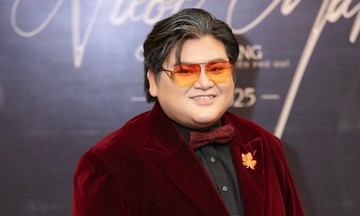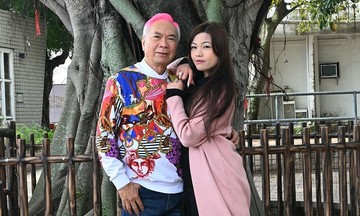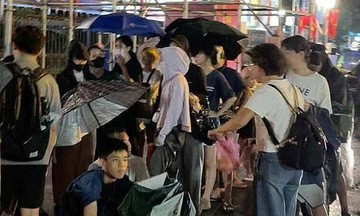The funeral of the veteran figure in the art world took place solemnly on a cold, rainy morning. His eldest son, Le Nguyen Nhat, recalled his father's words in his final days: "I am loved by many and I will fight for those who love me". In recent days, Nguyen Nhat and his younger brother have been busy arranging their father's funeral. They kept in mind his parting words: "Open your hearts, I only fear you won't have many friends." The artist passed away on 17/7, after a period battling cancer.
During a moment of silence, flute artist Le Thu Huong played Sebastian Bach's Sicilianno, a piece the painter loved, to bid farewell to his soul. Many friends quietly wiped away tears.
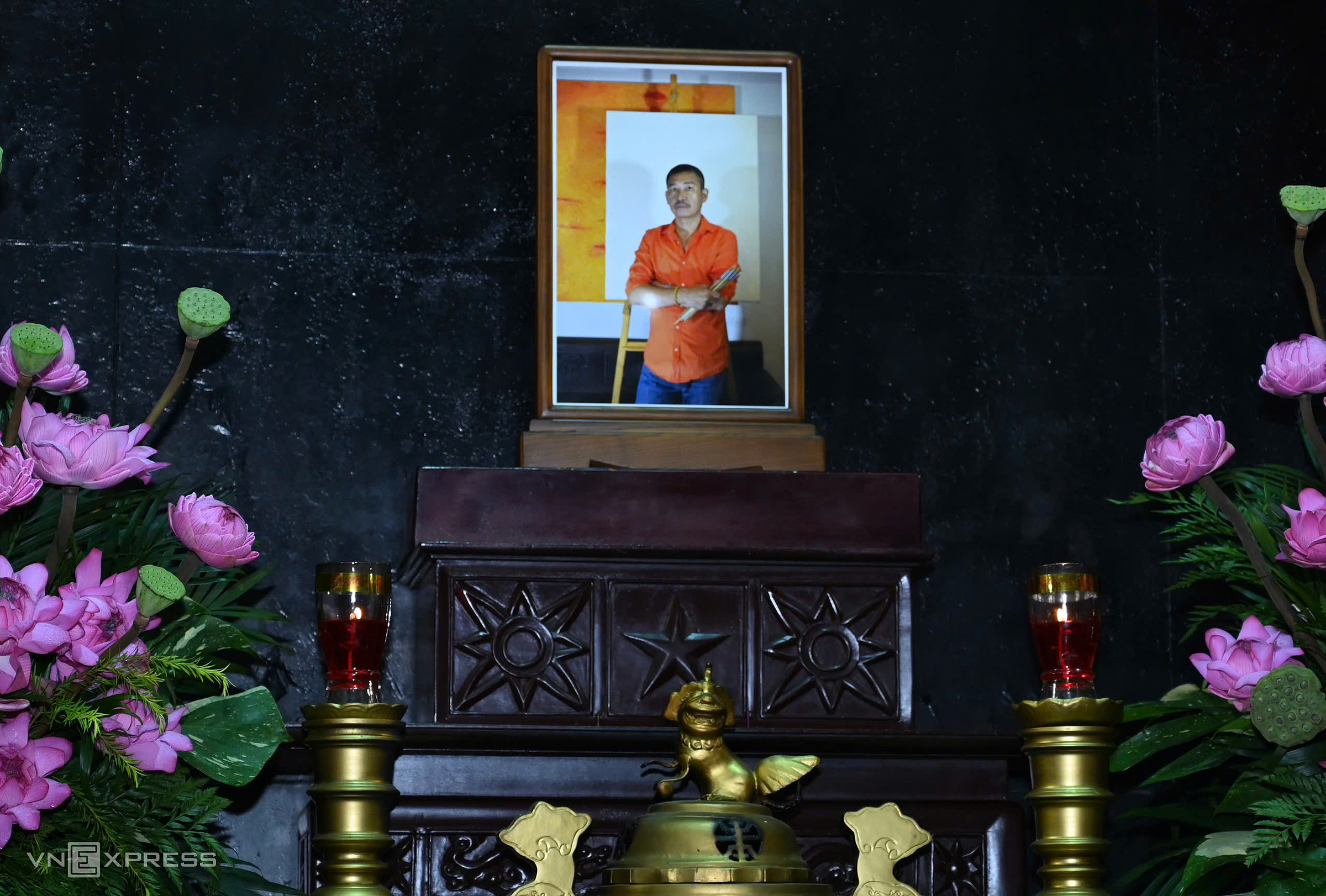 |
Portrait of painter Le Thiet Cuong. Photo: Giang Huy |
Portrait of painter Le Thiet Cuong. Photo: Giang Huy
Remembering Le Thiet Cuong, colleagues defined him succinctly: Disciplined, Talented, and Minimalist. He lived and worked diligently for nearly five decades, eager to find beauty in art and life.
Luong Xuan Doan, president of the Vietnam Fine Arts Association, summarized the artist's brief but brilliant journey in his eulogy: "Le Thiet Cuong embraced Buddhism and the I Ching, letting his soul flow into his paintings. Yet, he remained stubborn and daring, a unique personality trait. Cuong was sociable with colleagues, especially fond of younger artists. He fiercely defended different ways of thinking, seeing, and painting within the realm of individual creative freedom. He cared for the struggling and disadvantaged, and for their sake, he spoke out in the chaotic world of literature and art, uncertain of its direction. But that was truly Le Thiet Cuong, choosing a straight path, walking alone following Buddhist teachings, unwavering. From Dong Dao (Children's Rhymes) to Mot (One) and Toi Gian (Minimalism), my friend remained defiant, fearing no one. That's what made him Cuong."
With 26 solo exhibitions and 10 group exhibitions, the artist left a significant mark on contemporary Vietnamese art. He was a leading figure in exploring new painting techniques, achieving success with various mediums from gouache, oil, and lacquer to ceramics and sculpture.
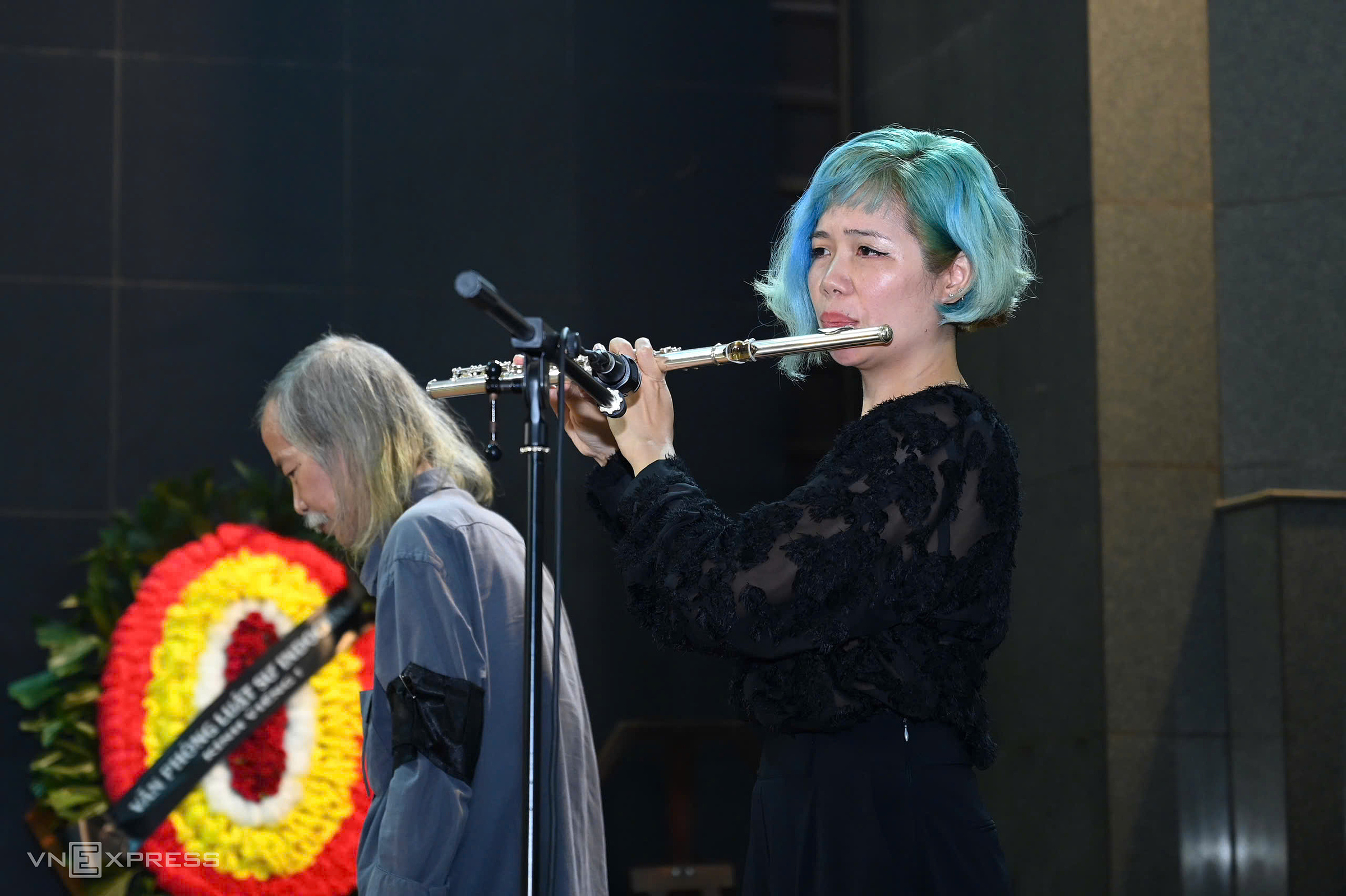 |
Artist Thu Huong plays the flute in farewell to painter Le Thiet Cuong. Photo: Giang Huy |
Artist Thu Huong plays the flute in farewell to painter Le Thiet Cuong. Photo: Giang Huy
Vi Kien Thanh, former director of the Department of Fine Arts, Photography and Exhibitions, praised the artist's dedication in pursuing minimalism: "Minimalism suits those with an East Asian philosophical mindset, requiring artists to diligently refine form and line. The line between minimalism and simplicity is very thin." In Thanh's memory, the artist was passionate about many fields, from painting and literature to publishing. In each area, he strived for and achieved a certain level of success.
The artist's funeral took place in a warm, dreamy atmosphere, reflecting the Hanoi-born artist's personality. Family members carefully attended to every detail, arranging everything according to Le Thiet Cuong's preferences. His portrait showed him standing before a blank canvas, paintbrush in hand. Visitors paid their respects accompanied by symphonies of Bach, Chopin, and Beethoven, selected from CDs he often played. Before his passing, during his hospitalization, the artist immersed himself in music and poetry to alleviate his physical pain.
Lotus and rose – Le Thiet Cuong's two favorite flowers – adorned the altar and coffin. A devotee of Buddhism, he painted numerous lotus pictures during his lifetime. In his final days, back in his beloved home on Ly Quoc Su street, Hanoi, he rested peacefully in his mother's arms, in a room filled with the fragrance of roses.
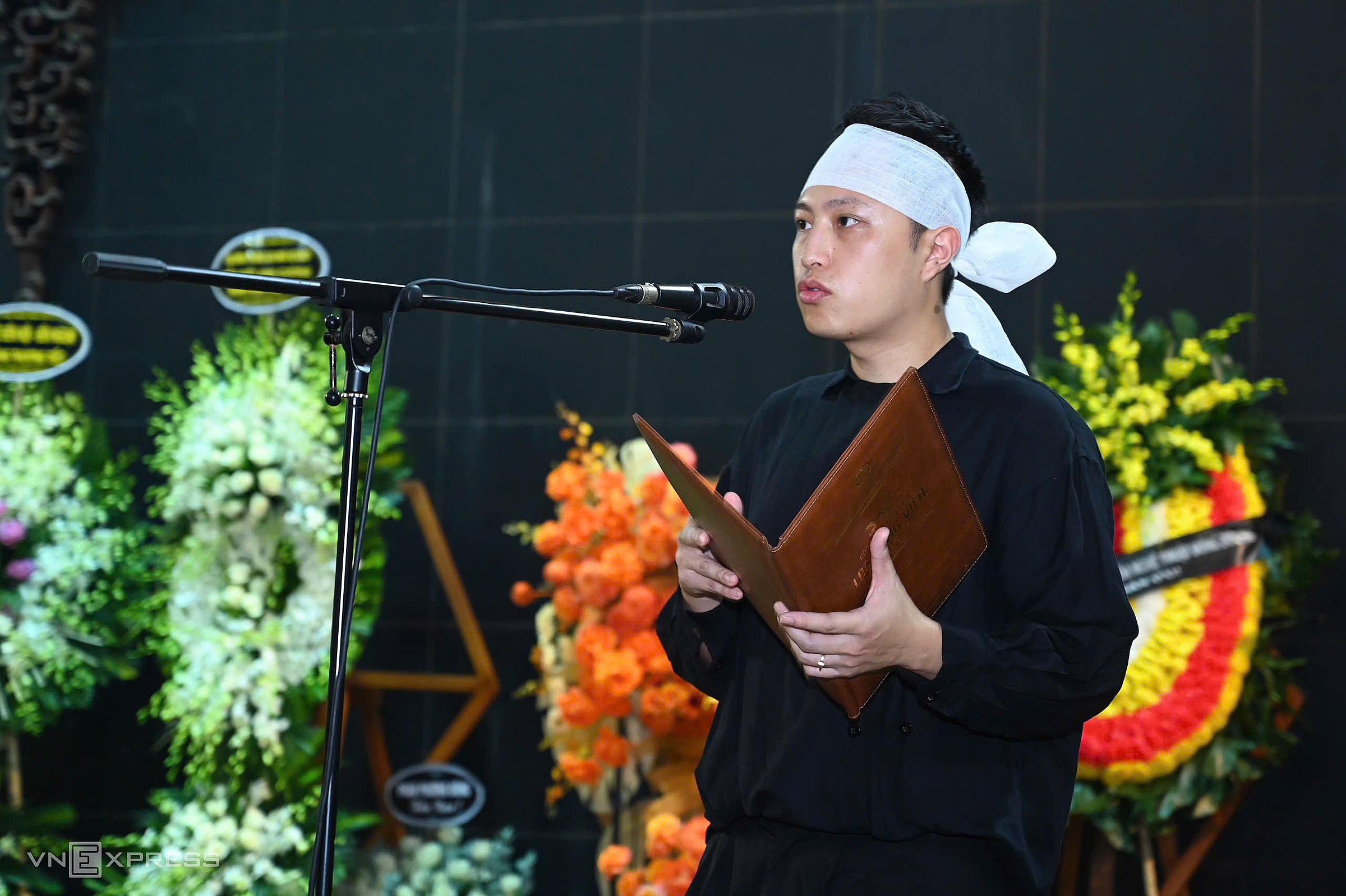 |
Nguyen Nhat, the artist's eldest son. Photo: Giang Huy |
Nguyen Nhat, the artist's eldest son. Photo: Giang Huy
On the condolence book table, the family placed fresh flowers and a newspaper featuring the article "A Beautiful Journey Has Ended." The article concludes: "Multi-talented, creating beauty through various avenues, Le Thiet Cuong was a friend to many and a deeply compassionate individual with profound cultural depth. His beautiful journey has met a tragic end, but the beauty Le Thiet Cuong created remains."
Besides friends from the art and literary worlds, many neighbors, former classmates, and art lovers came to bid him farewell. All remembered a generous, chivalrous Le Thiet Cuong, possessing the pride of a gifted artist.
Author Nhu Binh, a friend of the artist, wrote the poem "On a Season of Fallen Lotus" in the condolence book:
"Cuong
I weep for you a teardrop of glass
I weep for you a shattered jade vase
Sharp as a blade of injustice
Falling on blades of grass
I weep for you a field of fallen lotus
The desolation of a summer just passed."
Painter Le Thiet Cuong, born in 1962, was the son of screenwriter and poet Le Nguyen and cinematographer Do Phuong Thao. He studied at the Hanoi University of Theatre and Cinema from 1985 to 1990. He pursued minimalist painting for nearly 40 years, experimenting with various branches: shades, color harmony, form, and line.
Beyond painting, Le Thiet Cuong excelled in fields like photography, sculpture, architecture, and design. He participated in numerous exhibitions domestically and internationally, curated many events, and has works in the collection of the National Museum of Singapore.
The artist also had a knack for art criticism, authoring the books Thay (Seeing) (2017) and Tro Chuyen voi Hoi Hoa (Conversations with Paintings) (2025). Before his passing, he had finished printing a new collection of essays and was preparing for an exhibition.
Ha Thu





